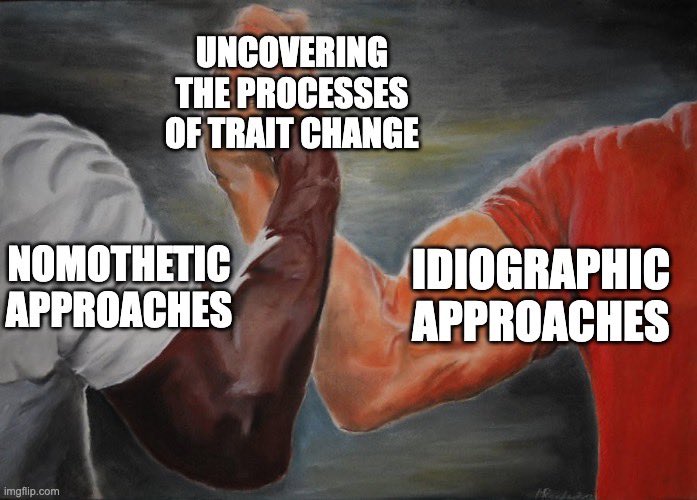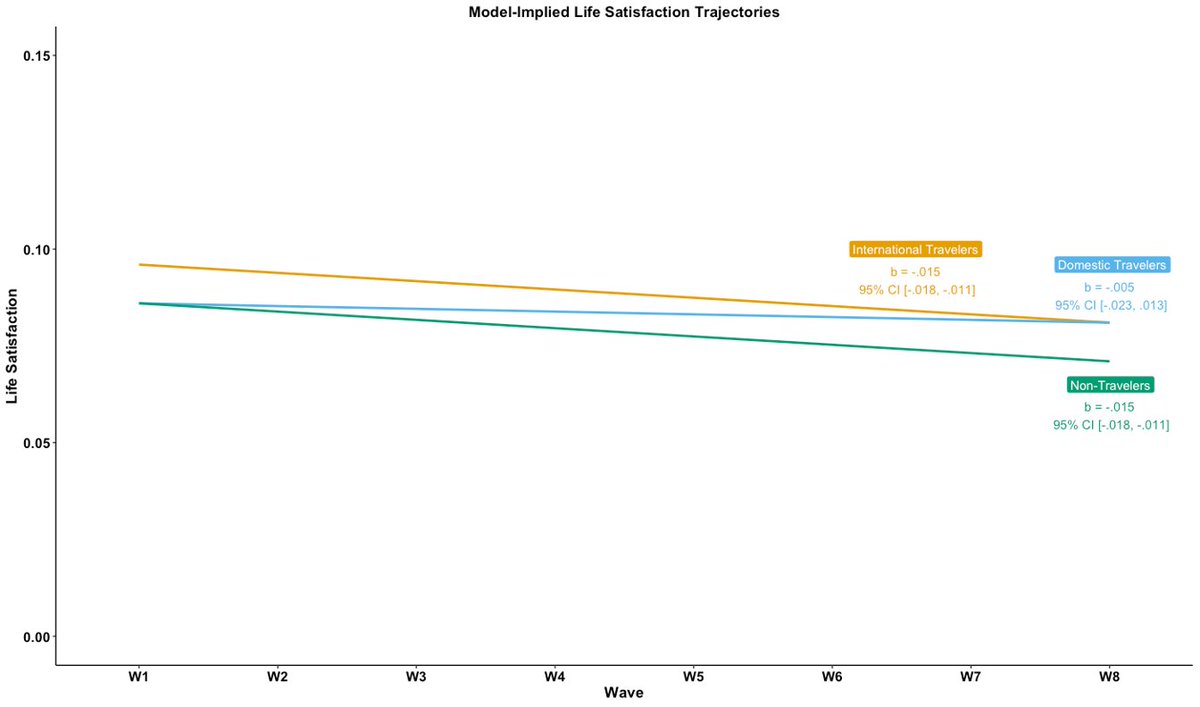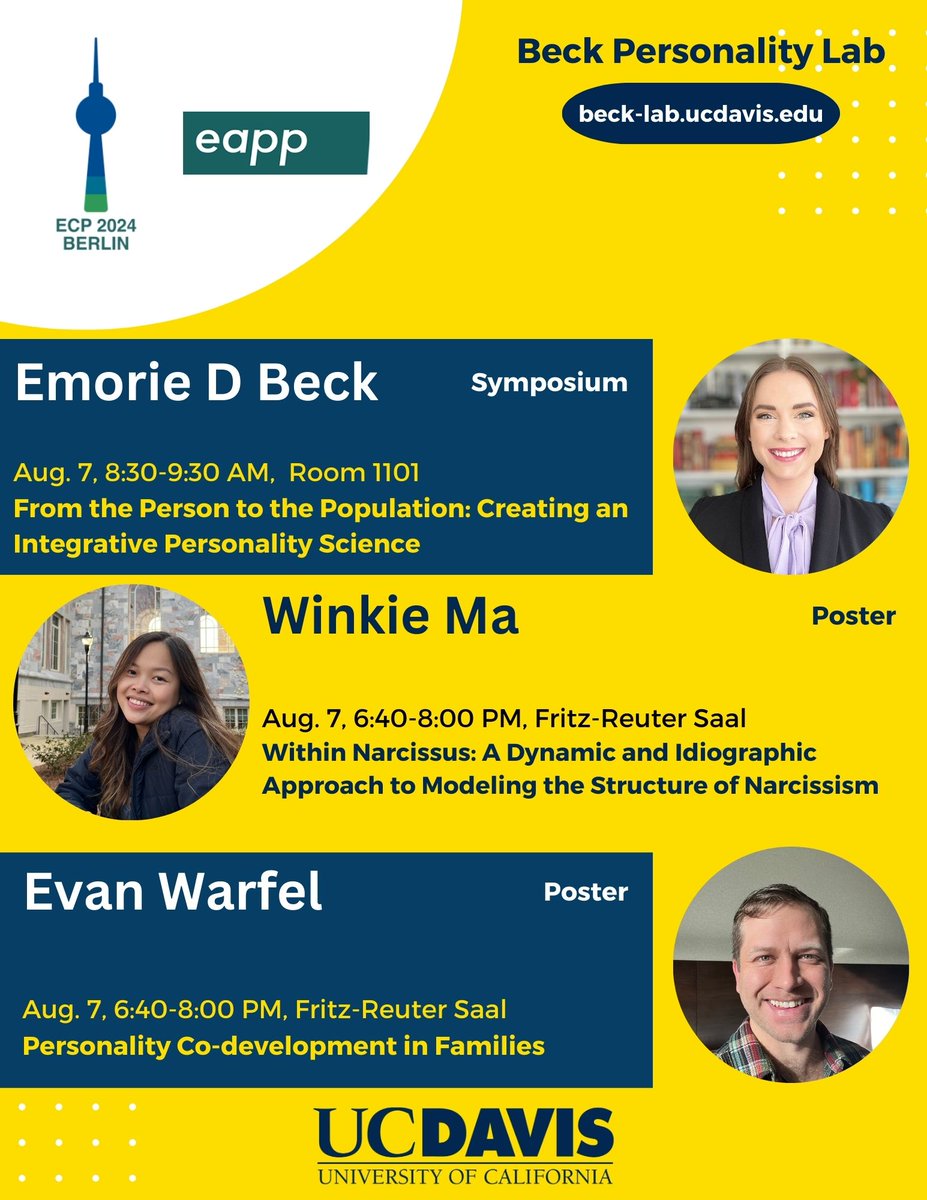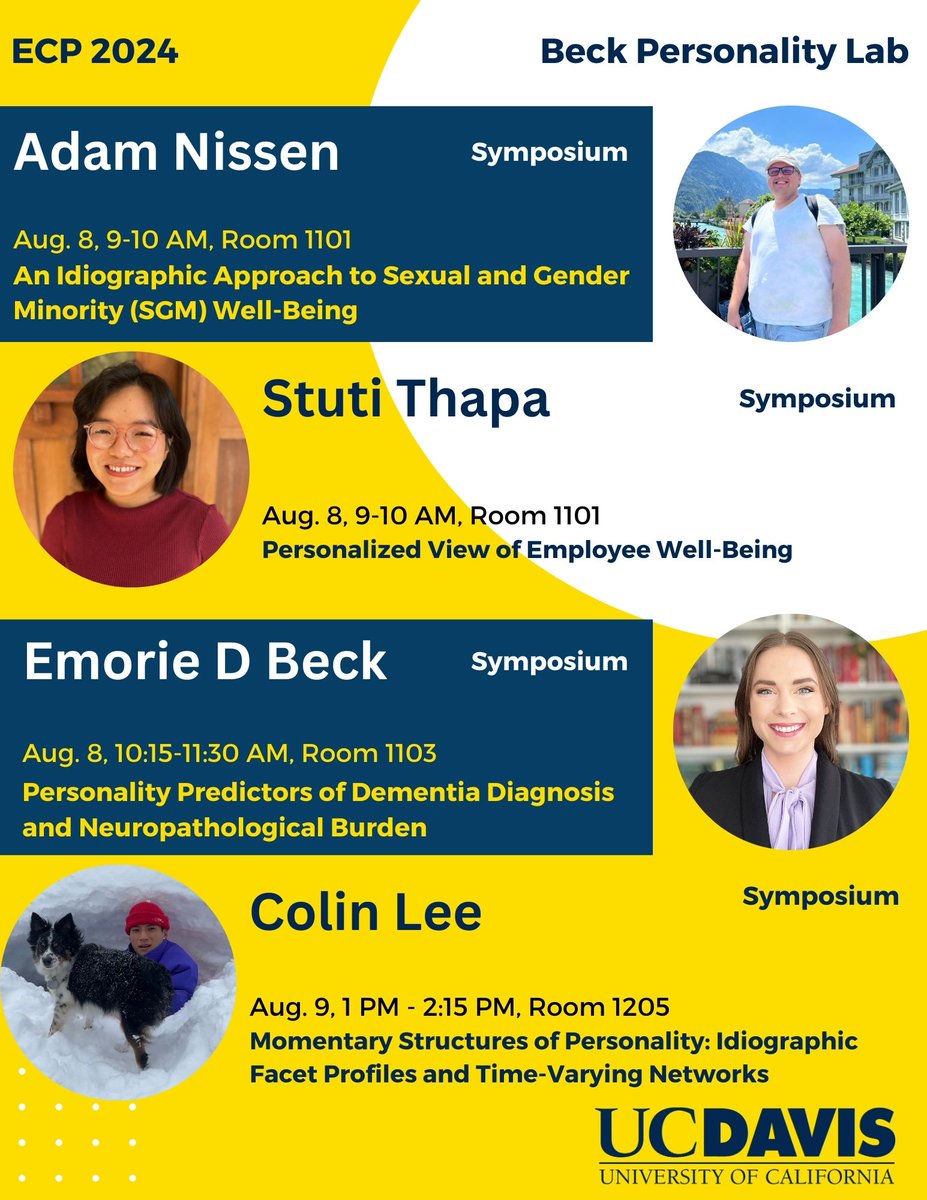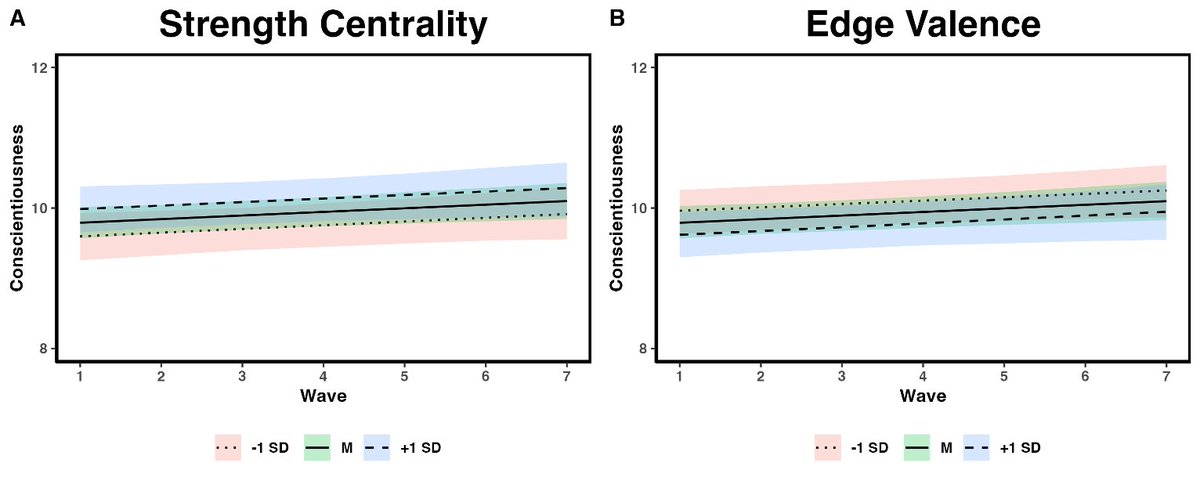
Adam Nissen
@adamnissen97
Followers
139
Following
260
Media
7
Statuses
36
PhD Candidate @UCDavis studying personality and well-being | he/him 🇨🇺🏳️🌈
Davis, CA
Joined March 2022
New preprint with @EmorieBeck !! We argue that well-being science needs more person-specific approaches to re-center the person in the study of well-being. Such person-specific conceptualizations are core to many foundational well-being theories. 1/5.
2
6
32
Now out in JPSP!.
New preprint w/ @EmorieBeck !!Nomothetic and idiographic approaches are sometimes seen as competing approaches, yet we argue that linking them together may help us understand individual differences in trait change! Here’s some insight from our exploratory study: 1/n
2
0
4
Now out in Personality Science! Happy travels!.
Also! New manuscript with @mrlenhausen @WiebkeBleidorn @HopwoodChris on life satisfaction and leisure travel! We compared the life satisfaction levels and trajectories of international and sole domestic travelers as well as people who did not travel over 8 years in LISS 1/4.
0
1
5
RT @PsyArXiv_bot_v2: Idiographic Momentary Profiles of Personality Facets
osf.io
Personality psychology has long focused on between-person differences, often neglecting the dynamic, idiographic nature of personality as it unfolds over time. This study introduces idiographic...
0
6
0
RT @Bernd_Schaefer_: I am very excited to announce that my first first-author publication was accepted at JPSP: Tha….
0
2
0
RT @dulcewestberg: 🚨 Recruiting PhD Students 🚨.I am currently seeking motivated graduate students to join me in the Psych Dept at UC Davis….
0
9
0
Also! New manuscript with @mrlenhausen @WiebkeBleidorn @HopwoodChris on life satisfaction and leisure travel! We compared the life satisfaction levels and trajectories of international and sole domestic travelers as well as people who did not travel over 8 years in LISS 1/4.
1
2
8
Come see some early findings from one of our new studies on sexual and gender minority experiences! Part of the bridging nomothetic and idiographic approaches to well-being chaired by @JulianScharbert !!.
For those attending #ecp21, some great talks and posters coming out of my research group! @winkie_ma @anotherpianosan @adamnissen97 @colinjnthnlee @StutiThapa7
0
0
8
RT @EmorieBeck: For those attending #ecp21, some great talks and posters coming out of my research group! @winkie_ma @anotherpianosan @adam….
0
2
0
RT @AldoBarrita: 🚨New publication🚨. Intersectional Minority Stress Model for BIPOC LGBTQ+🏳️🌈🏳️⚧️✊🏾 . We explore proximal/distal stressors….
0
46
0
